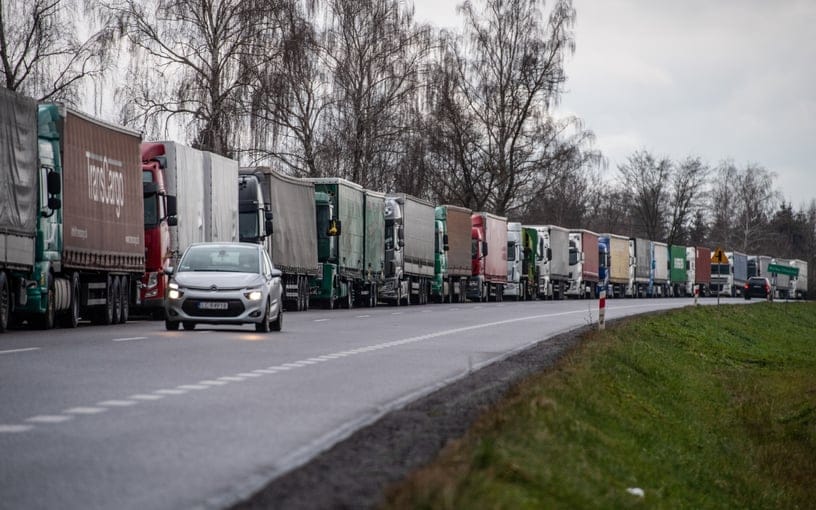Escalating Tensions and Economic Strain at the Polish-Ukrainian Border
The Polish-Ukrainian border has become a flashpoint of escalating tension and economic strain as the fourth week of protests by Polish carriers unfolds. The demonstrations, fueled by deepening hostilities and blockades, highlight a complex mix of issues, including threats against Polish drivers by their Ukrainian counterparts and disruptions in the

The Polish-Ukrainian border has become a flashpoint of escalating tension and economic strain as the fourth week of protests by Polish carriers unfolds. The demonstrations, fueled by deepening hostilities and blockades, highlight a complex mix of issues, including threats against Polish drivers by their Ukrainian counterparts and disruptions in the transport of goods and humanitarian aid.
The introduction of an electronic queuing system by Ukraine has dramatically increased waiting times for EU-registered vehicles returning from Ukraine, sometimes up to two weeks. This has triggered appeals from Polish officials for exemptions at key border crossings. However, Ukrainian authorities remain steadfast, underscoring the suffering of their drivers in harsh conditions.
Amidst these challenges, transport organizations from Poland, Lithuania, Czech Republic, Slovakia, and Hungary are urgently calling for fair competition with Ukrainian firms. The situation is exacerbated by significant financial losses for member companies and a dramatic surge in road freight costs, prompting a call for calm discussions by the Polish-Ukrainian Chamber of Commerce. The standoff at the border continues to pose serious economic and diplomatic challenges, with no immediate resolution in sight.
The situation at the Polish-Ukrainian border serves as a microcosm of the broader challenges faced in international transport and trade, especially in regions affected by geopolitical tensions. The impasse not only disrupts economic activities but also reveals deeper issues of international cooperation, regulatory alignment, and the need for crisis management mechanisms in cross-border operations. This crisis underscores the importance of effective communication and negotiation between neighboring countries, especially in resolving conflicts that have far-reaching implications for both local economies and the broader European market.
As the situation evolves, it will be crucial for both Polish and Ukrainian authorities to engage in constructive dialogue and explore collaborative solutions that address the needs and concerns of all stakeholders involved. The resolution of this conflict could serve as a model for handling similar disputes in the future, emphasizing the need for resilience and adaptability in international trade and relations.




